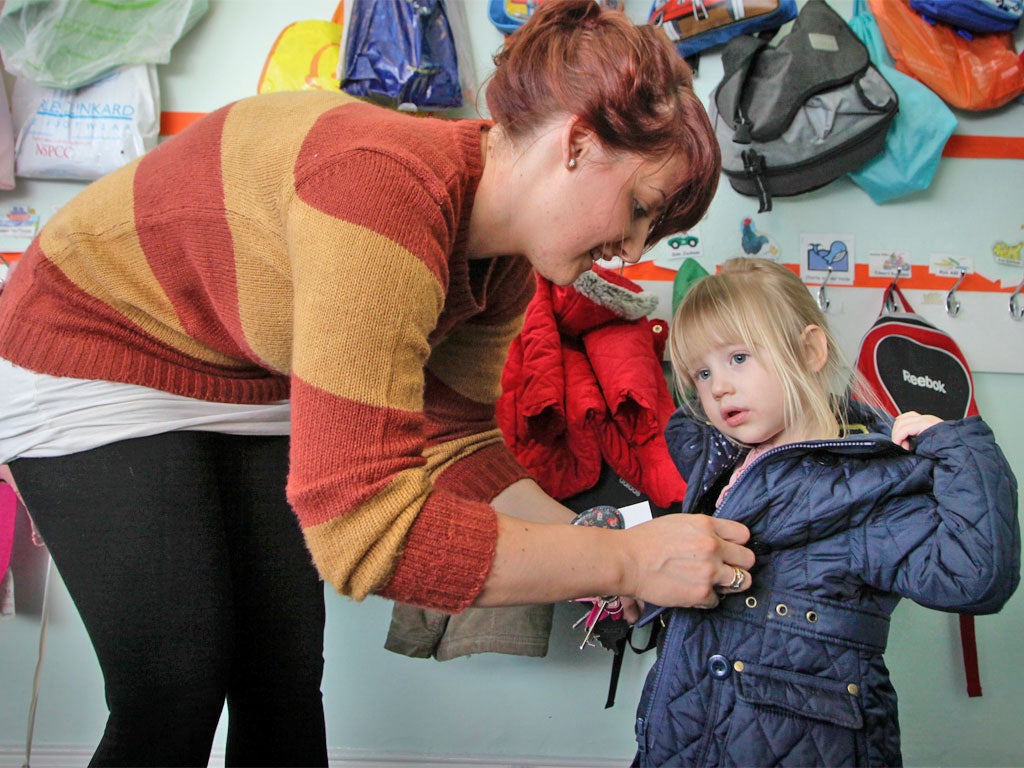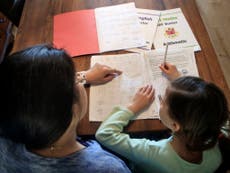‘Crushing pressure’: More than half of women say wellbeing damaged by home-schooling children during lockdown
Data suggests classroom closures had greater impact on women than men

Your support helps us to tell the story
From reproductive rights to climate change to Big Tech, The Independent is on the ground when the story is developing. Whether it's investigating the financials of Elon Musk's pro-Trump PAC or producing our latest documentary, 'The A Word', which shines a light on the American women fighting for reproductive rights, we know how important it is to parse out the facts from the messaging.
At such a critical moment in US history, we need reporters on the ground. Your donation allows us to keep sending journalists to speak to both sides of the story.
The Independent is trusted by Americans across the entire political spectrum. And unlike many other quality news outlets, we choose not to lock Americans out of our reporting and analysis with paywalls. We believe quality journalism should be available to everyone, paid for by those who can afford it.
Your support makes all the difference.More than half of women who home-schooled a children during the UK’s last lockdown say their mental health and wellbeing, according to new research suggests classroom closures took an uneven toll on parents depending on gender.
Surveys by the Office for National Statistics (ONS) found 53 per cent of female parens felt classroom closures were taking their toll on their wellbeing, compared to 45 per cent of men polled in late January and early February.
The findings reveal a sharp rise from the one in three women who said the government’s decision to shut schools to contain the spread of coronavirus was damaging their wellbeing last spring, when one in five men reported the same.
Boris Johnson ordered the closure of all primary and secondary schools across England in January, with lessons moving online for all pupils apart from the vulnerable and the children of key workers.
Researchers found women spent 55 per cent more time than men on unpaid childcare during the first national lockdown but this figure had surged to 99 per cent in September and October last year.
The ONS also said men and women had experienced “significantly different levels of anxiety, loneliness and worry about the coronavirus, and depressive symptoms”.
Vivienne Hayes, chief executive of the Women’s Resource Centre, the leading national umbrella organisation for the women’s sector in the UK, told The Independent: “The current pandemic environment is stressful enough for everyone. But if you are a poorer woman, then the pressure is enormous.
“Not only have you got to feed your children, but also home school them, and give them emotional love and care. You are also worrying about your own job and income - if you’ve got one.
“If you are looking after your children, how are you going to keep working. It is not possible to manage this unless you have considerable financial resources. Yet again women are being put under crushing pressure because of sexist government policymaking.”
Ms Hayes noted there had been various research pointing to the disproportionate responsibility women take for looking after children or caring for elderly or disabled relatives.
Victoria Benson, chief executive of single parent charity Gingerbread, said: "This data shows mothers have been hit hard by the pandemic but it doesn't tell the full story.
“Single parents, 90 per cent of whom are women, have been hit even harder. They have faced a triple penalty of lost income, lost child maintenance, and increased expenses while children have been at home.
“In addition, single parents are unable to share homeschooling responsibilities and cannot juggle childcare as couple parents can. We know that their wellbeing and mental health have been severely affected by this.”
She called for ministers to acknowledge the needs of single parents and make sure policies safeguard vulnerable families who are “already disproportionately exposed to poverty and all the disadvantage this brings."
The findings come after a recent study found women are twice as likely to need time off work with no pay to look after children due to schools closing.
Research, conducted by Fawcett Society and Women’s Budget Group, found 15 per cent of mothers say they would have to take time off work while not being paid as a result of schools shutting their doors or their child getting sick, whereas only eight per cent of fathers reported the same.
Multiple studies have found the pandemic could exacerbate gender inequality due to women being over-represented in locked down sectors of work and taking on the burden of homeschooling, childcare and household chores amid coronavirus turmoil.


Join our commenting forum
Join thought-provoking conversations, follow other Independent readers and see their replies
Comments